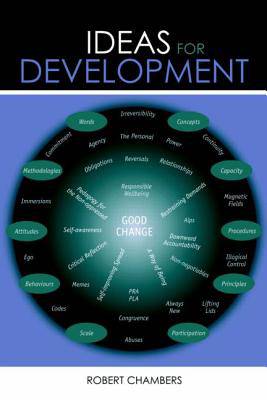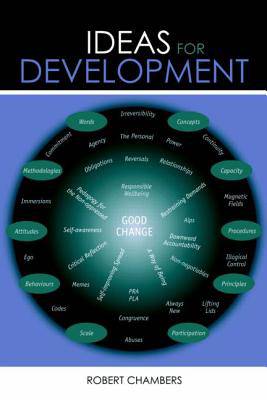
- Afhalen na 1 uur in een winkel met voorraad
- Gratis thuislevering in België vanaf € 30
- Ruim aanbod met 7 miljoen producten
- Afhalen na 1 uur in een winkel met voorraad
- Gratis thuislevering in België vanaf € 30
- Ruim aanbod met 7 miljoen producten
Zoeken
Omschrijving
Our world seems entangled in systems increasingly dominated by power, greed, ignorance, self-deception and denial, with spiralling inequity and injustice. Against a backdrop of climate change, failing ecosystems, poverty, crushing debt and corporate exploitation, the future of our world looks dire and the solutions almost too monumental to consider. Yet all is not lost. Robert Chambers, one of the ?glass is half full? optimists of international development, suggests that the problems can be solved and everyone has the power at a personal level to take action, develop solutions and remake our world as it can and should be. Chambers peels apart and analyses aspects of development that have been neglected or misunderstood. In each chapter, he presents an earlier writing which he then reviews and reflects upon in a contemporary light before harvesting a wealth of powerful conclusions and practical implications for the future. The book draws on experiences from Africa, Asia and elsewhere, covering topics and concepts as wide and varied as irreversibility, continuity and commitment; administrative capacity as a scarce resource; procedures and principles; participation in the past, present and future; scaling up; behaviour and attitudes; responsible wellbeing; and concepts for development in the 21st century.
Specificaties
Betrokkenen
- Auteur(s):
- Uitgeverij:
Inhoud
- Aantal bladzijden:
- 320
- Taal:
- Engels
Eigenschappen
- Productcode (EAN):
- 9781844070879
- Verschijningsdatum:
- 3/05/2005
- Uitvoering:
- Hardcover
- Formaat:
- Genaaid
- Afmetingen:
- 164 mm x 240 mm
- Gewicht:
- 576 g

Alleen bij Standaard Boekhandel
+ 549 punten op je klantenkaart van Standaard Boekhandel
Beoordelingen
We publiceren alleen reviews die voldoen aan de voorwaarden voor reviews. Bekijk onze voorwaarden voor reviews.











